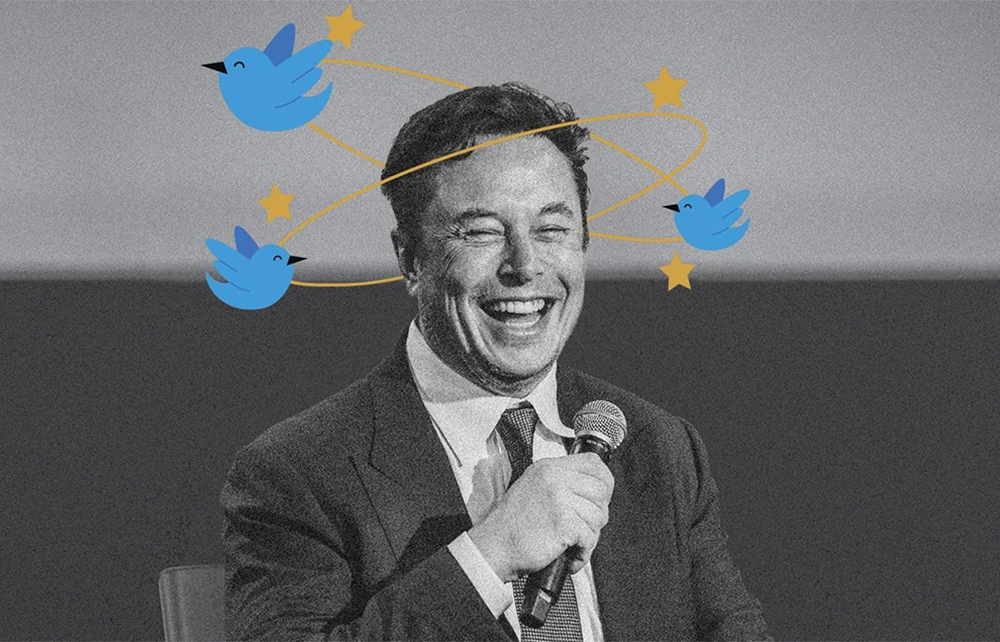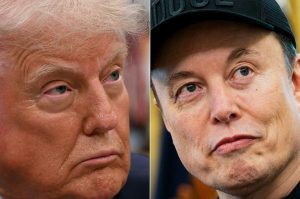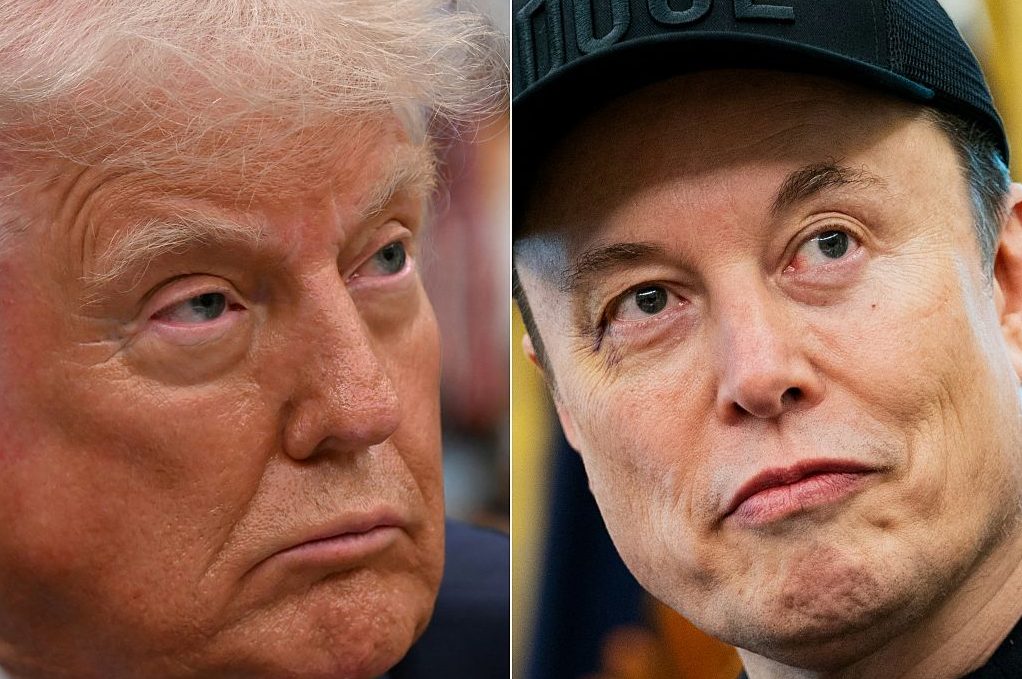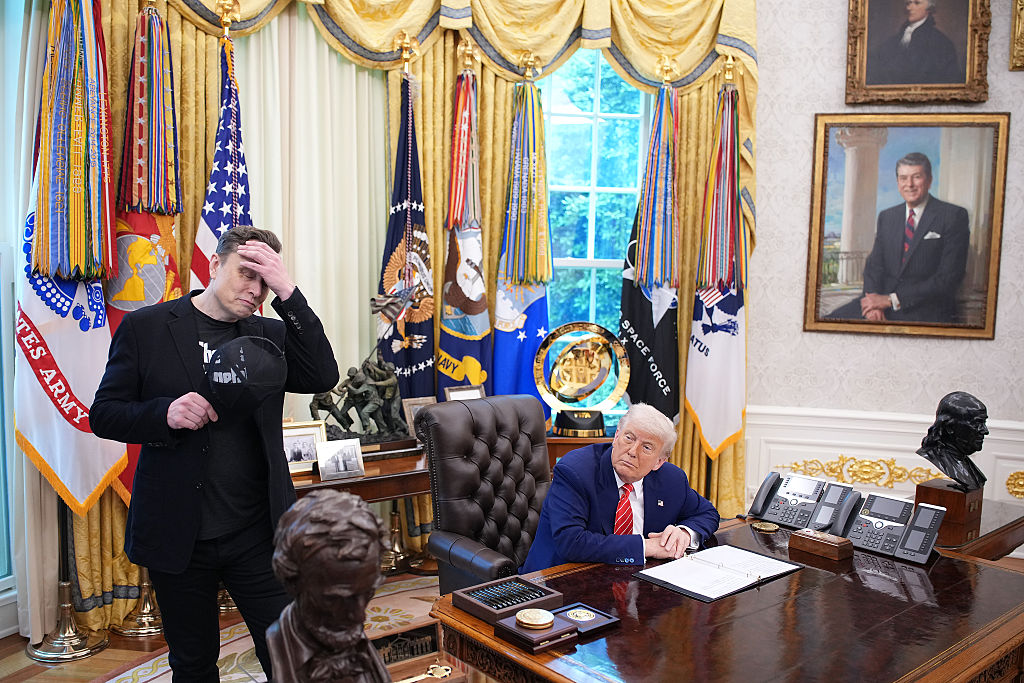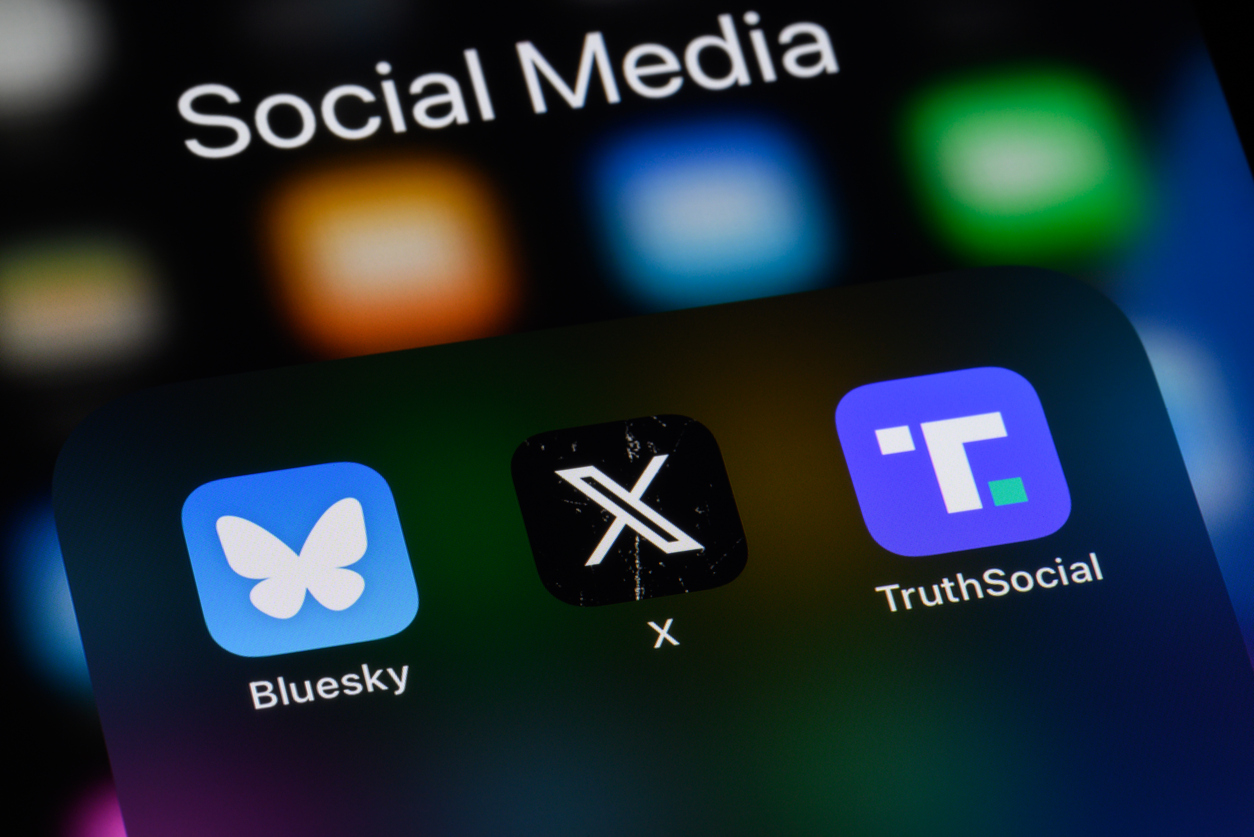I was one of the first people to take up Elon Musk’s offer to purchase a blue tick, the Twitter equivalent of VIP status. Not because I didn’t have a complimentary one — I did, believe it or not — but because if you sign up to Twitter Blue it means you can post videos on the site that are longer than a couple of minutes.
Poor Elon Musk then had to do a reverse ferret, announcing he’d be restoring the merit badges to a select few
I had noticed that my friend Konstantin Kisin had put up a speech he’d made at the Oxford Union and it was getting lots of views. I spoke in the same debate and gave what I thought was a much better speech, so wanted to put mine on Twitter, hoping it would prove even more popular. I asked him how he’d managed to get around the two-minute limit and he said you had to sign up to the premium service. So I took the plunge, posted my speech, then obsessively monitored the views it was getting, waiting for the moment it would overtake Konstantin’s. In retrospect, I may have been wrong about how much better my effort was than his. At last count, his speech had 10.5 million views and mine had 30,500.
My humiliation didn’t end there. Since introducing the subscription option, Musk has been gradually removing the high-status badges from those who haven’t paid for them and last week stripped a final tier of celebrities of their blue ticks: Beyoncé, Cristiano Ronaldo and Kim Kardashian, among others. That didn’t go down well, as you can imagine. Many of the A-listers who’d been denuded of their elite status announced grandly that they wouldn’t dream of paying $8 a month for a privilege that had meant nothing to them in the first place.
The real reason, obviously, is that the badge had ceased to have any value in their eyes now that any Tom, Dick or Harry could pay for it. This created the terrifying prospect that the people with the VIP imprimatur would be seen as low-status wannabes, with the absence of a tick becoming the equivalent of a tick in the pre-Musk era. Did this mean I’d now have to get rid of mine? There was little point in trotting out the “longer video” excuse — that would be like saying you only bought Playboy for the interviews.
Poor Elon Musk then had to do a reverse ferret, announcing he’d be restoring the merit badges to a select few, such as Stephen King, who immediately complained they no longer wanted this mark of Cain. But what choice does Musk have? He has to restore the desirability of having a blue tick, otherwise why would anyone want to buy one? I feel sorry for the billionaire rocket man, who is trying to turn Twitter from an advertiser-supported company into a subscription-funded one.
That makes sense because many of the platform’s big advertisers have been scared away by woke campaign groups, which dislike Musk’s politics. The only way to placate those groups would be to restore Twitter’s left-wing bias, which would be at odds with his ambition of turning it into the “digital town square” and prioritizing free speech. Much better to reduce the company’s reliance on advertisers and get its users to pay for the service, thereby making it less vulnerable to defunding campaigns.
A case in point is the fate of Tucker Carlson, who parted company with Fox News earlier this week. Left-wing groups have been targeting the channel for at least five years, urging people to boycott the products advertised on Carlson’s show. The campaign was definitely having an impact on the bottom line, but until now Rupert and Lachlan Murdoch, Fox Corporation’s chair and CEO respectively, had stood firm. However, the embarrassment of having to fork out close to a billion dollars to settle the lawsuit with Dominion, the voting machine company suing Fox News for accusing it of colluding with the Democrats to “steal” the presidency from Donald Trump, may have weakened their resolve.
Contrast this with the more robust stance taken by Netflix, a subscriber-funded streaming service. When activist employees demanded it get rid of Dave Chappelle, the anti-woke comedian, the CEO told them Netflix caters to people with a wide range of different tastes and viewpoints and if they didn’t like that they could take a hike. The protest quickly fizzled out.
So even though blue ticks on Twitter are no longer as prestigious as they were, I would urge everyone who cares about free speech to buy one. Not only is it a more democratic way to allocate status — Musk described the old process as a “lords and peasants system” — but it will help the world’s second-richest man turn Twitter into the impartial platform we’d like it to be. Just don’t do it to promote your “brilliant” speeches. That may not work out as you hoped.
This article was originally published in The Spectator’s UK magazine. Subscribe to the World edition here.



